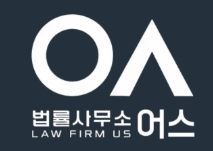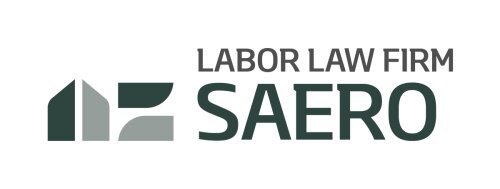Best Wage & Hour Lawyers in Seoul
Share your needs with us, get contacted by law firms.
Free. Takes 2 min.
List of the best lawyers in Seoul, South Korea
About Wage & Hour Law in Seoul, South Korea:
Wage & Hour law in Seoul, South Korea governs the rights and obligations of employees and employers regarding working hours, overtime pay, minimum wage, and other related issues. These laws aim to ensure fair treatment and compensation for employees.
Why You May Need a Lawyer:
You may need a lawyer for Wage & Hour issues in Seoul, South Korea if you believe your employer is not paying you the correct wages, denying you overtime pay, or violating any other labor laws. A lawyer can help you understand your rights, negotiate with your employer, and take legal action if necessary.
Local Laws Overview:
In Seoul, South Korea, the Labor Standards Act and the Minimum Wage Act are the key pieces of legislation governing Wage & Hour issues. The Labor Standards Act sets rules on working hours, overtime pay, holidays, and more. The Minimum Wage Act establishes the minimum wage that employers must pay their employees.
Frequently Asked Questions:
Q: What are the standard working hours in Seoul, South Korea?
A: The standard working hours in Seoul are 40 hours per week, with a maximum of 12 hours per day.
Q: Is overtime pay required in Seoul, South Korea?
A: Yes, employers must pay employees at least 150% of their regular wage for overtime work.
Q: Can employers require employees to work on weekends or public holidays?
A: Employers can request employees to work on weekends and public holidays, but they must provide additional compensation or compensatory time off.
Q: What are the rules regarding vacation leave in Seoul, South Korea?
A: Employees are entitled to paid vacation leave, with the amount depending on their length of service.
Q: Can employers deduct wages for reasons other than taxes or social security contributions?
A: Employers cannot deduct wages without the employee's consent, except for legal reasons like taxes or social security contributions.
Q: How can I report a Wage & Hour violation in Seoul, South Korea?
A: You can report violations to the Ministry of Employment and Labor or seek legal assistance from a lawyer.
Q: Can employers terminate employees for raising Wage & Hour complaints?
A: No, employers cannot retaliate against employees for raising legitimate Wage & Hour complaints.
Q: Are part-time employees entitled to the same Wage & Hour rights as full-time employees?
A: Yes, part-time employees are also entitled to Wage & Hour rights, including overtime pay and minimum wage.
Q: How long do I have to file a Wage & Hour claim in Seoul, South Korea?
A: The statute of limitations for Wage & Hour claims is generally three years from the date the violation occurred.
Q: How much does it cost to hire a lawyer for Wage & Hour issues in Seoul, South Korea?
A: The cost of hiring a lawyer can vary depending on the complexity of the case and the lawyer's fees. Some lawyers may offer free initial consultations or work on a contingency fee basis.
Additional Resources:
For more information on Wage & Hour laws in Seoul, South Korea, you can visit the Ministry of Employment and Labor website or contact the Labor Welfare Service Call Center at 1350.
Next Steps:
If you believe your Wage & Hour rights have been violated in Seoul, South Korea, it is important to seek legal advice as soon as possible. A lawyer specializing in labor law can help you understand your rights, assess your case, and guide you through the legal process to seek remedies for any violations.
Lawzana helps you find the best lawyers and law firms in Seoul through a curated and pre-screened list of qualified legal professionals. Our platform offers rankings and detailed profiles of attorneys and law firms, allowing you to compare based on practice areas, including Wage & Hour, experience, and client feedback.
Each profile includes a description of the firm's areas of practice, client reviews, team members and partners, year of establishment, spoken languages, office locations, contact information, social media presence, and any published articles or resources. Most firms on our platform speak English and are experienced in both local and international legal matters.
Get a quote from top-rated law firms in Seoul, South Korea — quickly, securely, and without unnecessary hassle.
Disclaimer:
The information provided on this page is for general informational purposes only and does not constitute legal advice. While we strive to ensure the accuracy and relevance of the content, legal information may change over time, and interpretations of the law can vary. You should always consult with a qualified legal professional for advice specific to your situation.
We disclaim all liability for actions taken or not taken based on the content of this page. If you believe any information is incorrect or outdated, please contact us, and we will review and update it where appropriate.














